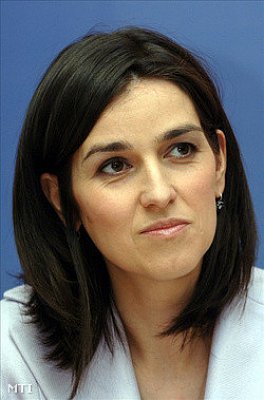INTERVIEW WITH AMBASSADOR ANITA ORBÁN (PRIORITY AREA COORDINATOR)
NPCS BULLETIN: What are key notes of EUSDR in energy sector?
Anita Orban: The EUSDR is a macroregional strategy for 14 countries of the Danube region. The Strategy has 11 priority areas which are the focus of its activities. One of the priority areas of the Strategy is the “Sustainable Energy” area. The work of this area is coordinated by Hungary and the Czech Republic. The energy priority area concentrates its work around three pillars: energy infrastructure, energy markets as well as renewable energy and energy efficiency.
NPCS BULLETIN: Can You tell us about three major challenges: the internal energy market integration, the deployment of smart grids at European, regional and municipal level and modernization of the networks in order to integrate the renewable energy?
Anita Orban: The internal energy market integration needs to go forward both on the infrastructural level as well as in the sense of overcoming the non-infrastructural barriers of crossborder trade. There has been a lot of progress made in the last few years at EU, national and regional level, as well. To name a few examples: some missing interconnectors were built, reverse flows are put in place, ACER was created. However, there is still a lot of work which needs to be done before we will be able to say that we have an integrated energy market in Europe. The Danube region’s electricity consumption will likely grow in the future. At the same time we use energy pretty inefficiently. To be competitive, we need to enhance our energy efficiency significantly. Smart grids can be one of the solutions.
NPCS BULLETIN: Many say that EUSDR framework provides an excellent platform for cooperation in energy sector. Can You explain that?
Anita Orban: The Danube Strategy provides an excellent opportunity for countries involved to cooperate in different issues. First, it is a tool for coordinating regional energy policies to exploit the potential of an integrated energy market. Second, the energy priority area aims at assisting in the integration of the energy markets of the non-EU countries to the EU standards. Third, the Danube Strategy has the potential to launch and enhance cutting edge technology developments for our future modern energy systems which will be able to integrate significant amount of renewable energy and improve energy efficiency. All these issues necessitate international, cross-border cooperation. The Strategy is a sound platform for this.
NPCS BULLETIN: How EUSDR deals with energy security?
Anita Orban: One of the pillars of the energy priority area is to enhance the development of energy infrastructure projects. We developed our Danube Region Gas Market Model in 2012 which is able to quantify the regional impact of the proposed gas infrastructure projects (from the point of view of supply security and price impact, as well). The Model was widely introduced and is unique in the sense of offering a regional approach when it comes to key missing gas infrastructure projects. The energy priority area’s other main objective is market integration which when achieved, enhances energy security, as well.
via Bulletin of Serbian National Petroleum Committee of the World Petroleum Council ( http://www.wpcserbia.rs/ )


